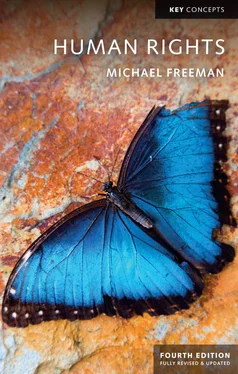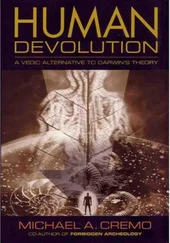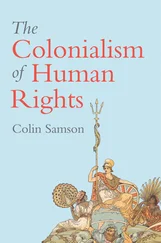There is a huge gap between the experiences of the Syrian people since 2011 and those of human-rights lawyers, activists and academics. This gap has been filled to a large extent by law and legal studies. These studies are certainly important. The gap is, however, also filled by politics, and by social, cultural and economic forces. These may be more important, but they were until fairly recently neglected in academic discourse. The aim of this book is to make a contribution to rectifying this imbalance.
Until recent years the study and, to a considerable extent, the practice of human rights was dominated by lawyers. The cause of human rights owes a great debt to them. There is a danger, however, that excessive attention to human-rights law distorts our understanding of human rights. This book seeks to put law in its place by adopting an interdisciplinary approach. The concept of human rights has a history marked by philosophical controversies. Knowing that history and understanding those controversies illuminate the state of human rights today. Since the end of the Second World War, the concept has been incorporated into a large body of international and national law, but it has also been at the heart of political conflicts. The law is important, but understanding human rights requires us to understand its politics. Law and politics do not exhaust the human-rights field. The other social sciences – such as sociology, anthropology, international relations and economics – are essential to our appreciation of human-rights problems and their possible solutions. Human rights is an interdisciplinary concept par excellence .
We begin this inquiry by tracing, in chapter two, the historical emergence of human rights. The story continues in chapter three by examining its gradual acceptance by the international community. Chapter four investigates the principal theoretical justifications of and debates about the concept. The distinctive contribution of the social sciences is then surveyed in chapter five. In chapter six the place of human rights in national and international politics is analysed, and the respective roles of international institutions, governments and NGOs evaluated. The political economy of human rights forms the subject of chapter seven, with special attention to development, globalization, business corporations, international financial institutions, climate change, new technologies and pandemics. Much-debated questions about the supposed universality of human rights and its relation to actual human differences are addressed in chapter eight, with particular emphasis on cultural minorities, indigenous peoples, and the rights of women, children, sexual minorities, disabled persons, migrants and refugees. We conclude, in chapter nine, with reflections on the history of human rights, their current status and their likely future. One of the few certainties is that understanding human rights will be essential to understanding the world that we live in for a long time to come.
2 Origins The Rise and Fall of Natural Rights
Why history? Which history?
Human rights are universal. History relates change. Human rights have a history. The contemporary concept of human rights is a product of that history, but how can a universal concept have a history of change?
The history of human rights itself has a history, which is controversial. Recently, a new generation of historians of human rights has challenged what they call the ‘textbook’ history. This history, according to its critics, is a triumphalist story of progress from superstition and cruelty to rationality and humanity. It is located primarily in Europe and North America, and is consequently a tale of the inevitable triumph of Western liberalism. The story is rendered more plausible by marginalizing the historical connections between liberal rights and colonialism (Halme-Tuomisaari and Slotte 2015).
Samuel Moyn has argued that the ‘deep history’ of human rights, tracing the contemporary concept back to the eighteenth century and beyond, is false. The concept of human rights, on his account, refers to a global morality that became significant only in the 1970s. Earlier conceptions of rights were addressed to different problems and thus had different meanings. For example, the eighteenth-century French revolutionary concept of the Rights of Man affirmed the sovereignty of the nation-state, whereas the concept of human rights seeks to constrain state sovereignty by appealing to a normative order above the state. The earlier concepts could not therefore be the source of the later one. This is the true history of human rights. Moyn believes that the contemporary human-rights movement seeks legitimacy in this false deep history and its supposed inevitability. He admits that there is some continuity in the history of human rights but holds that the discontinuities are more important than the continuities, because they emphasize the role of choice in history, thereby keeping open the possibility of better choices in future (Moyn 2010).
Moyn’s ‘discontinuity’ objection to ‘textbook’ histories of human rights is distinct from the ‘triumphalist’ objection. ‘Deep’ history can, however, be defended against both objections. As a history of Christianity would be absurd without a reference to the life of Jesus, so a history of human rights can be illuminated by tracing its ancient origins. Such an approach does not have to deny the obvious fact that the meaning of rights-language has changed over time, that rights-proposals have often been contested, that the history is one of advances and setbacks, paths taken and opportunities missed, of main roads, side roads and dead ends. The history should assume as little as possible about the merits and limitations of the contemporary concept: evaluation belongs to philosophy not history (see chapter four).
However, before we can study the history of human rights, we must know what it is the history of. We might begin with a definition, but the variety of meanings of human rights across time and space makes an uncontroversial definition difficult. It is better, therefore, to begin the history of human rights with the point of the concept. The contemporary concept of human rights was developed as a response to the abuse of power. This conception of human rights is suitable for deep history because power and its abuse can be found throughout history. The history of human rights can trace the emergence of the idea of universal rights as a solution to this problem. The modern concept differs from earlier rights-concepts, but it is composed of various elements that have their own histories and that have come together in the modern concept.
Some say that the concept of human rights has a universal history. The Code of Hammurabi (c.1792–1750 bc), king of Babylon, is said to be the oldest surviving text establishing the rule of law. Cyrus the Great (died 529 bc), king of Persia, proclaimed a policy of religious toleration and abolished slavery. The Buddhist King Ashoka of India (c.264–238 bc) also promoted religious toleration, provided for the health and education of his people, and appointed officials to prevent wrongful punishments (Weeramantry 1997: 7–8). Thus, principles now associated with human rights can be found in ancient times in many cultures. These examples weaken the claim that the concept of human rights is Western. However, they appear to be evidence of benevolent rulers rather than of human rights as such.
Others maintain that the concept of human rights originated in the West and was universalized only recently. Some argue that, if the history is Western, its validity cannot be universal. Others say that the history of a concept is irrelevant to its validity: there may be good reasons for universalizing a concept that has a particular history.
Читать дальше












